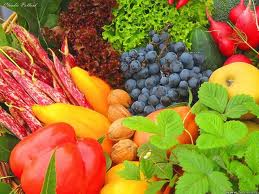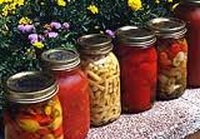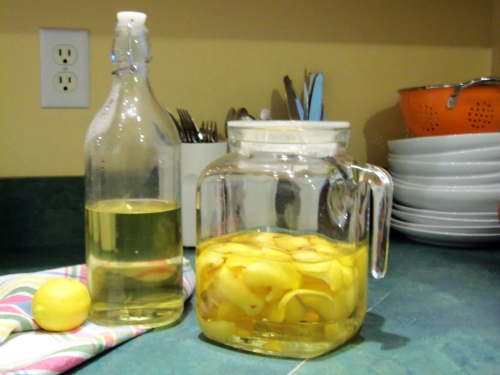 People often ask me, “What can I do?” when thinking about the global depression, foreclosuregate, political gridlock, corporate greed or the environment. One answer is easy and simple: buy local.
People often ask me, “What can I do?” when thinking about the global depression, foreclosuregate, political gridlock, corporate greed or the environment. One answer is easy and simple: buy local.
This is a very strategic choice. Buying local keeps jobs in your community, it keeps your hard-earned money in your community and it supports small business owners in your community. It also eliminates shipping charges when you buy food or products from the immediate surrounding area where you live. Be strategic with your money. Use your purchasing power in a way that supports your own best interests.
We try to buy local whenever we can and we encourage every organization that we are involved with to do the same, whether it is a political group, church group or book club.
We use “Community Sponsored Agriculture” (CSA) for our vegetables, fruit and cheese. The portions are large so we split with another family. Usually a weekly delivery is to a location in your neighborhood. Farmers’ Markets can work just as well. No shipping cost or time since everything is grown nearby. This means everything lasts TWICE AS LONG in the refrigerator. It allows us to eat seasonally from April to January. You can check out CSA’s and Farmers’ Markets in Minnesota at Minnesota Grown. It’s also a good site to check for apple & berry picking along with local honey, wines and artisan cheeses.
Grocery stores we use are Cub, Byerly’s or Kowalski’s – again local businesses. Cub, especially notes “local” on product signs in their produce departments. Unfortunately only Kowalski’s carries FAIR TRADE coffee, so we go there when we need to buy coffee – an expensive item. Happily, FAIR TRADE coffee is often the less expensive choice.
MidTown Global Market on Lake Street in Minneapolis allows us to purchase gifts, cards, cheeses, olives, soaps and other items from baby start-up businesses. Most products you find there will be FAIR TRADE – so especially important to us. Global Market is a wonderful incubator for neighboring entrepreneurs and ethnic businesses owned by new immigrants. Walking through Global Market is a “United Nations” experience in itself and well worth the trip.
United Noodles on 24th Street just off Minnehaha Ave. in Mpls. is by far the largest Japanese grocery store I have ever been in. If you have never seen 40+ lineal feet of every kind of rice and noodles imaginable – plan a visit. Their produce department rivals any I’ve seen in Europe for display, color and quality. But do watch labels – there are often locally made options so you can avoid buying items shipped all the way from Japan (ouch!).
Over the years we’ve found many locally owned, ethnic restaurants. Owners are quick to help guests choose menu items they may like, with little or a lot of spice. They are delighted to serve large parties and remember you – you are important to their business.
We don’t eat out very often, but when we do here are local (Eagan) restaurants we give our business to – Hoban Korean Restaurant, Classic Saigon and Magic Thai Cafe for Vietnamese, Sambol for Indian cuisine (great chai tea), Pardon My French, Ansari’s Mediterranean Grill and El Loro Mexican Restaurant. Lunch, dinners, take-out and large group visits are consistently good. Prices are reasonable for all and we are supporting locally owned, small businesses. Most of these restaurants use local produce for freshness too, an added bonus. Perfect!
Dunn Brothers Coffee, is a local coffee roaster and coffee chain with a location on Diffley east of Lexington that uses FAIR TRADE coffee – so we like them too. Ring Mountain Creamery makes their own authentic Italian gelato on the premises and you will taste the difference, even while you watch them make it. Both Dunn Bros. and Ring Mountain are excellent places to meet for book clubs, and group meetings of 10-20. Ring Mountain even has a meeting area separate from the main seating area that can be reserved in advance – no charge.
We try to use SuperAmerica and Holiday for gasoline since they are local distributors – which eases the pain very slightly.
Check Buy Local MN.com. when you are ready to make a purchase. Chances are there is a local provider.
What about you? How do you vote with your dollars? What local businesses do you like to support? Leave a comment and let us know.
You may also like Healthy Food is a Luxury for the Rich, What Can You and I Do? and Truth or Consquences.









